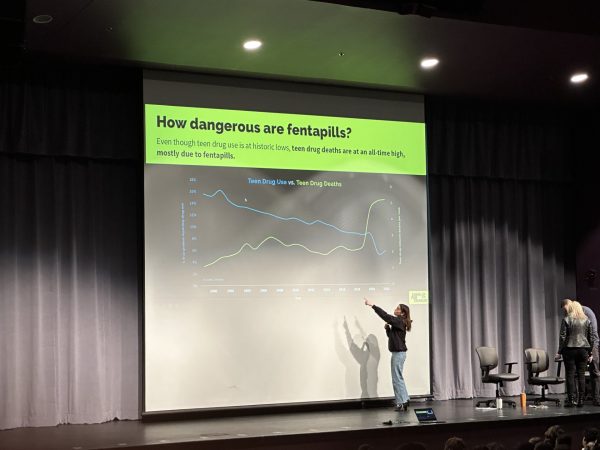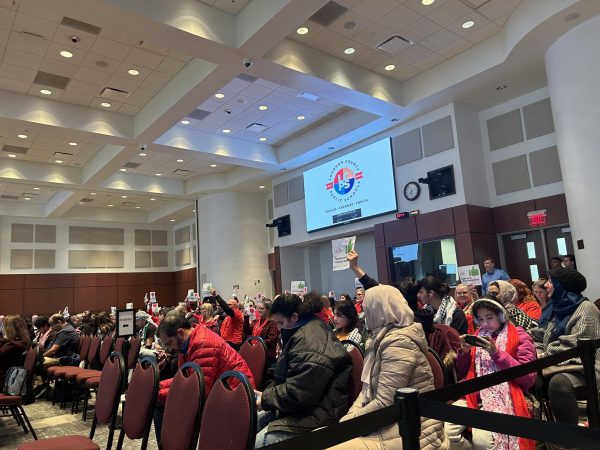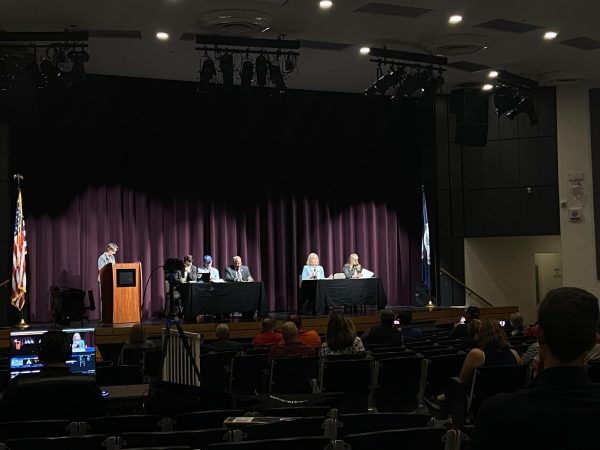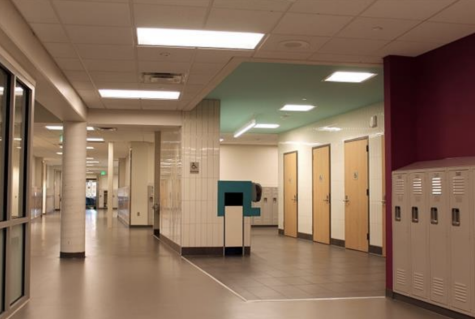LCPS Revamps County-Wide Grading Policies

Major changes are coming to next year’s grading policy.
After over a year long process of reviews, edits, and votes, Loudoun County Public Schools (LCPS) has now adopted the changes to Policy 5030 county wide. Policy 5030 outlines numerous changes to the county’s grading and assessment policies that will be implemented into the 2020-2021 school year.
A uniform grading policy has now been adopted county wide. This will require every school to conform their grading and assessment policies to match that explained in Policy 5030 in the LCPS Policy and Regulations. “Our current policies on assessment and grading are very vague. At the high school, parents shared concerns about student GPAs and how they might be affected by varying assessment and grading practices within departments, schools, and at the district level. It is important to bring about a level of consistency from school to school in assessment and grading practices,” said Director of High School Education Nereida Gonzalez-Sales.
The most notable change to the grading policy comes in the reassessment policy. Students will now be allowed to retake any major assessments (A major summative assessment is 10% or more of the final quarter grade) if they receive a score below an 80%. In LCPS policy 5030 E.1 it states, “Teachers should provide opportunity for reassessment of major assignments to students who score below an 80%. The student will be given the higher grade between the original assessment and the reassessment up to 80%. Teachers, in consultation with the student support teams and parents, will provide students who demonstrate a pattern of repeated reassessments with an appropriate intervention, including limiting future opportunities for reassessment.”
Assistant Principal Jon Signorelli said, “The goal here is learning. Now there is testing and grading and what we want is assessment and learning.” He then followed up with, “Right now there is take this test, this is what you got, we’re moving on or we already moved on. I think this reassessment practice sends the right message. There are many situations in life where there are many trials and errors and you get feedback before you go back to the drawing board and redo. I do think these new policies are more reflective of what life is like after high school.”
“I support people being able to retake assignments and assessments. I might have put the floor at 70%, but I understand that testing can cause students anxiety,” AP literature teacher Mrs. Coleman said.
Another major change that has been implemented into the new policy is a floor quarter grade during the first three quarters of 50%. This does not apply to the 4th quarter. Section F of Policy 5030 states, “An assessment and grading system must be designed to motivate students and promote a growth mindset. Students who receive a grade below 50% often feel they have no chance of recovery and give up on achieving success in a course. For this reason, LCPS generally supports a floor of 50% when assessing student achievement in quarter and final grades.”
The goal here is learning. Now there is testing and grading and what we want is testing and learning.
— Jon Signorelli
“I think the logic is that if a student for example gets a 19% in the first quarter, they probably will not have an opportunity to pass the class without a floor grade to help. There may have been outside factors in their lives that affected them in the first quarter or other outside factors. Students then find themselves in situations where there is no hope to then pass the class and then give up. The quarterly floor grade provides some support. Allows those students to then turn it around later in the year. It’s healthy and doesn’t necessarily penalize a student who may have two bad unit test in the first quarter or something happened at home,” Signorelli said.
Teachers are also now required to accept “late-work.” All late work that has “made a reasonable effort to complete an assignment” cannot receive a grade that is below a 50% on a late assignment. Although a student may receive a score below a 50% on late-work if “a pattern of repeated late or missing work” is shown.
One major issue brought up that has been voiced throughout the county has been that of “grade inflation.” With all students eligible to receive scores up to 80% on all assessments and a quarterly floor of a 50% (barring the fourth quarter) there is room for many kids to boost their grades.
“I wonder if [grades] will actually inflate. Students are not required to take the reassessments,” Signorelli said. “I think this is healthy and is sending the right message. I am less concerned about numeric grade inflation but more interested being in a classroom where a teacher gives an assessment and a student not saying, ‘Is this graded?’. I’m interested in being in a classroom where a teacher will look at what you know and will help you teach the stuff you don’t know.”
In November and December of 2019 and January and February of 2020, one teacher and assistant principal from each secondary school will be asked to create guidelines with input from their school staff that support the School Board approved policy. These guidelines will then be shared with all schools along with professional development for implementation in the 2020-2021 school year.

Ian Whitfield has been a part of DHS press since 2016 and branched out from from his newspaper roots into broadcasting. Whitfield is the color commentator...












